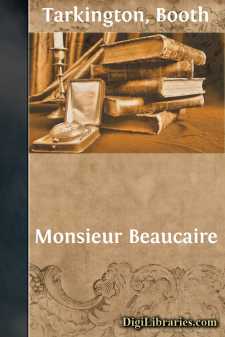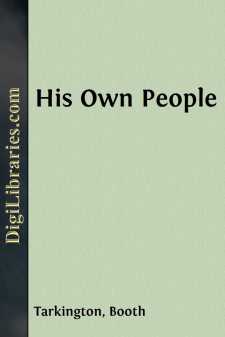Categories
- Antiques & Collectibles 13
- Architecture 36
- Art 48
- Bibles 22
- Biography & Autobiography 813
- Body, Mind & Spirit 142
- Business & Economics 28
- Children's Books 15
- Children's Fiction 12
- Computers 4
- Cooking 94
- Crafts & Hobbies 4
- Drama 346
- Education 46
- Family & Relationships 57
- Fiction 11828
- Games 19
- Gardening 17
- Health & Fitness 34
- History 1377
- House & Home 1
- Humor 147
- Juvenile Fiction 1873
- Juvenile Nonfiction 202
- Language Arts & Disciplines 88
- Law 16
- Literary Collections 686
- Literary Criticism 179
- Mathematics 13
- Medical 41
- Music 40
- Nature 179
- Non-Classifiable 1768
- Performing Arts 7
- Periodicals 1453
- Philosophy 64
- Photography 2
- Poetry 896
- Political Science 203
- Psychology 42
- Reference 154
- Religion 513
- Science 126
- Self-Help 84
- Social Science 81
- Sports & Recreation 34
- Study Aids 3
- Technology & Engineering 59
- Transportation 23
- Travel 463
- True Crime 29
The Gibson Upright
by: Booth Tarkington
Description:
Excerpt
ACT I
ANDREW GIBSON'S _office in his piano factory where he manufactures "The Gibson Upright." A very plain interior; pleasant to the eye, yet distinctly an office in a factory, and without luxuries; altogether utilitarian.
Against the wall on our right is a roll-top desk, open, very neat, and in the centre of the writing pad a fresh rose stands in a glass of water. Near by is a long, plain table and upon it a very neat arrangement of correspondence and a couple of ledgers.
Against the walls are a dozen plain cane-seated chairs. Near the centre of the room is a sample of the Gibson upright piano in light wood. There is a large safe, showing the word "Gibson," and there are filing cases. In the rear wall there is a door with the upper half of opaque glass, which shows "Mr. Gibson" in reverse; and near this door is a water filter upon a stand. In the wall upon our left is a plain wooden door. The rear door opens into the factory; the other into a hall that leads to the street.
Upon the walls are several posters, one showing "The Gibson Upright"—a happy family, including children and a grandparent, exclaiming with joy at sight of this instrument. Another shows a concert singer singing widely beside "The Gibson Upright," with an accompanist seated. Another shows a semi-colossal millionaire, and a workingman of similar size in paper cap and apron, shaking hands across "The Gibson Upright," and, printed: "$188.00—The Price for the Millionaire, the Same for Plain John Smith—$188.00." This poster and the others all show the slogan: "How Cheap, BUT How Good!"
Nothing is new in this room, but everything is clean and accurately in order. The arrangement is symmetrical.
As the curtain rises_ NORA GORODNA is seen at work on the sample "Gibson Upright." The front is not removed; but through the top of the piano she is adjusting something with a small wrench. NORA is a fine-looking young woman, not over twenty-six; she wears a plain smock over a dark dress. As she is a piano tester in the factory she is dressed neither so roughly as a working woman nor perhaps so fashionably as a stenographer. She is serious and somewhat preoccupied. From somewhere come the sounds of several pianos being tuned. After a moment NORA _goes thoughtfully to the desk and looks at the rose in the glass; then lifts the glass as if to inhale the odour of the rose, but abruptly alters her decision and sets the glass down without doing so. She returns quickly and decisively to her work at the piano, as if she had made a determination.
A bell at the door on our left rings._ NORA goes to the door and opens it.
NORA: Good morning, Mr. Mifflin.
MIFFLIN [entering]: Good morning, Miss Gorodna.
[MIFFLIN is a beaming man of forty, with gold-rimmed eyeglasses and a somewhat grizzled beard which has been, a week or so ago, a neatly trimmed Vandyke. He wears a "cutaway suit," not much pressed, not new; a derby hat, a standing collar, and a "four-in-hand" dark tie; hard, round cuffs, not link cuffs. He carries a folded umbrella, not a fashionable one; wears no gloves; and has two or three old magazines and a newspaper under his arm.]
MIFFLIN: I believe I'm here just to the hour, Miss Gorodna....












